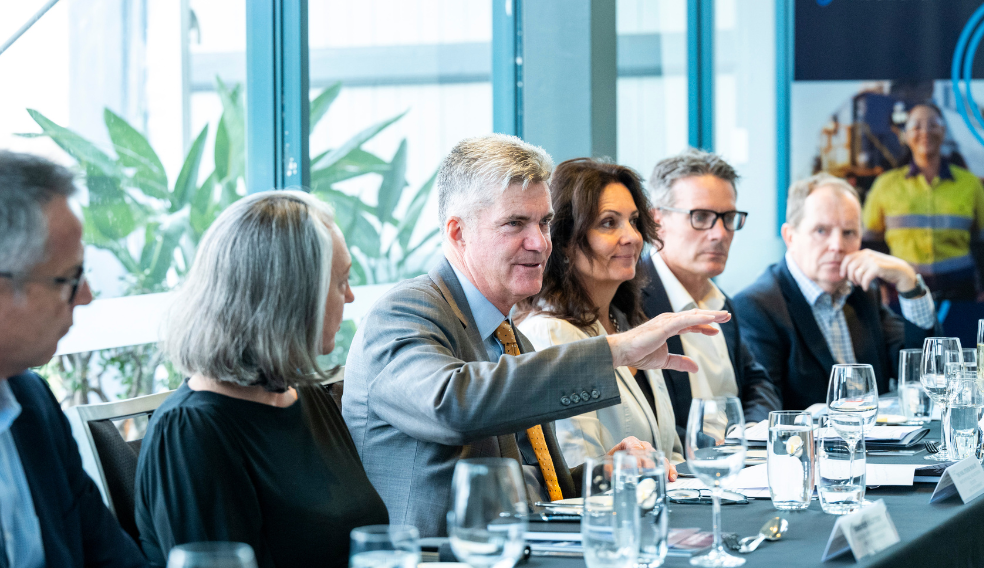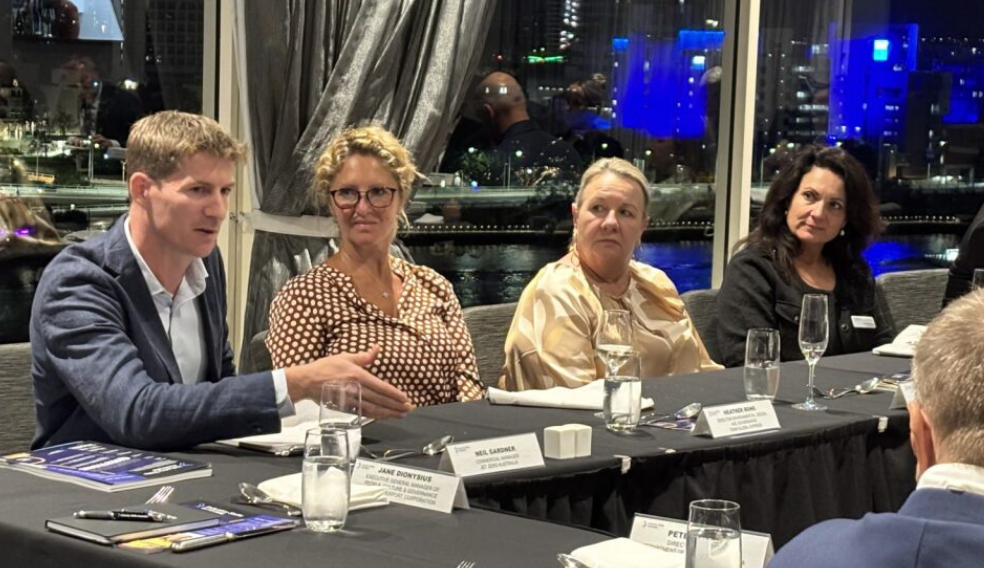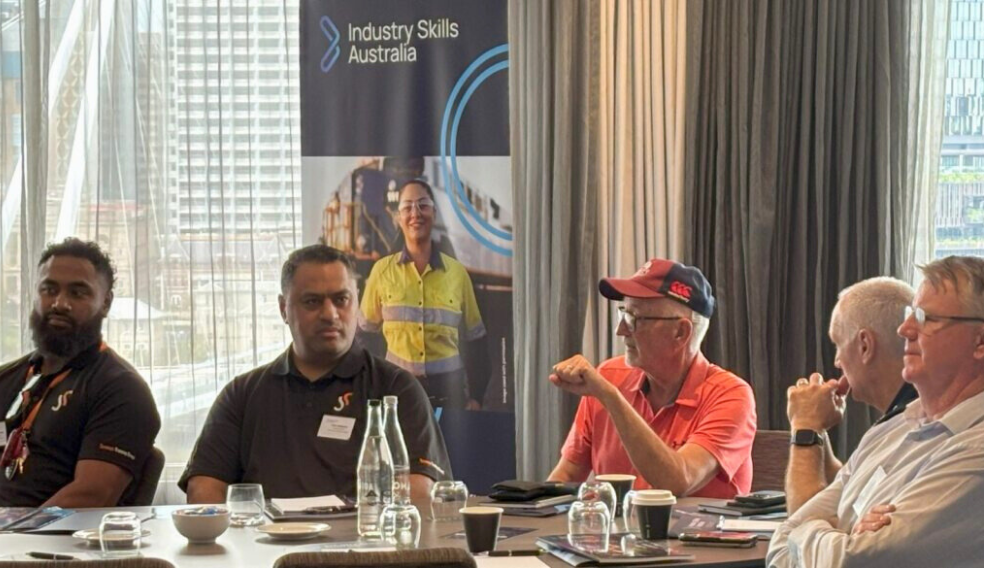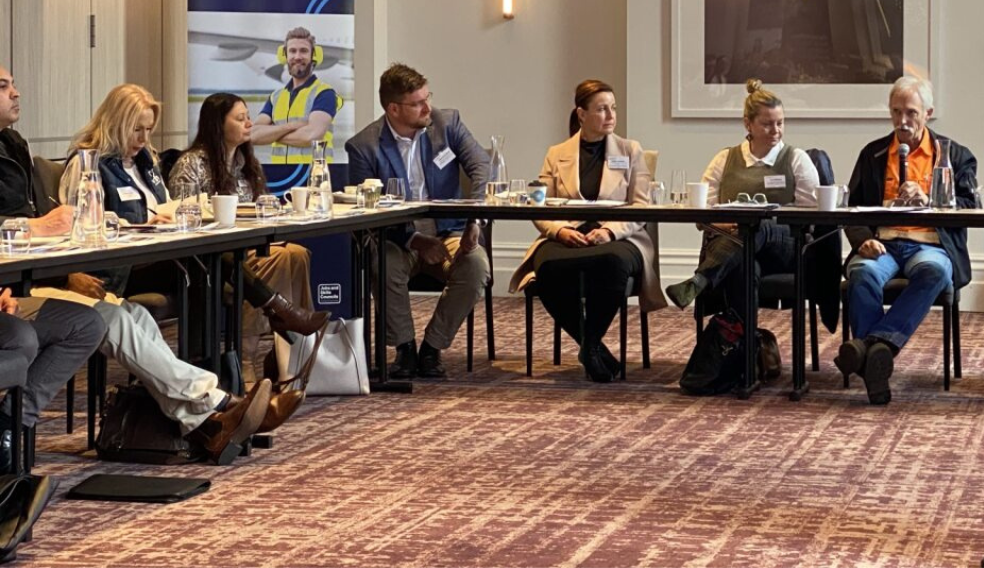Nov 24, 2025
Shaping tomorrow’s workforce - what industry leaders across Australia told us
Over the past four months, ISA has had the privilege of hearing firsthand from leaders across the Transport Supply Chain Industries in each state and territory about their priorities for building a skilled, productive and future-ready workforce. These conversations, held through Industry Leaders’ Dinners, roundtables, and site visits, have been insightful, open, and incredibly valuable.
Engaging directly with senior industry leaders, employers, unions, training providers, and government representatives (State Ministers) has provided a clear picture of what’s working, what needs improvement, and where stronger collaboration is essential.
Shared Challenges, Shared Opportunities
A common thread ran through every discussion: while each industry has its own pressures, many challenges are shared, and tackling them will require working together more intentionally than ever before.
Some of the major issues raised included:
- Attracting People to the Industry
Stakeholders spoke about the need to promote careers and pathways in the Transport Supply Chain Industries more effectively – especially through schools and early pathways, to shift outdated perceptions and open the door to new talent. Successes such as the Seven Hills High School VET in Schools program were shared as examples of an effective entry level pathway into industry. - Creating a More Diverse Workforce
Addressing skill and labour shortages will require attracting younger cohorts, tapping into skilled migration, and growing a more diverse workforce. With the Transport Supply Chain workforce rapidly aging, industry must better leverage and transfer the knowledge and skills of experienced workers to meet future needs. - Addressing Infrastructure and Social Barriers
Broader social challenges such as housing, childcare, and transport were identified as key barriers to attracting and retaining skilled workers in most states. Even the rising cost of living in many CBD areas is impacting wage expectations and influencing worker mobility. - Lifting the Quality of Training
The development of a skilled workforce relies heavily on high-quality training providers, but shortages of trainers and assessors are causing real concerns. - Driving Workforce Capability Through a Skills-First Approach
Strong support for a ‘skills first’ approach rather than time-based or age-based licensing. Competency-based training is considered more important for building workforce capability. - Addressing Regional Skills Gaps
Unique geographic challenges impact attraction and retention, while competition for labour from other industries and states remains high. Limited access to training requires innovative solutions, including migration pathways, mentoring programs, relocation incentives, and targeted training initiatives.
The roundtable also revealed some emerging priorities:
Investing in Technology and AI Training
Some organisations are already investing heavily in technology and AI training to help their teams embrace innovation and remain competitive.
Preparing for the Workforce of the Future
Industry leaders stressed the need to stay ahead of emerging technologies and AI adoption, and that upskilling and reskilling is fundamental to positioning the sector for success. AI must be considered alongside ethics and ethical decision-making to ensure responsible innovation.
Evolving Workforce Expectations
Employee expectations have shifted. Today’s workforce wants real opportunities for growth and development, and for businesses to live their values. This shift is reshaping how organisations think about attraction, retention, and long-term capability building.
---------
“It was a great opportunity to listen and learn of some of the challenges of doing business in the NT.”
— The Hon Jo Hersey, Minister for Education and Training
---------
These insights will directly shape ISA’s future projects and program of work, inform our advice to government, and guide evidence-based solutions for businesses and the workforce.
A very sincere thank you to everyone who gave their time, shared their views and created such powerful conversations.





